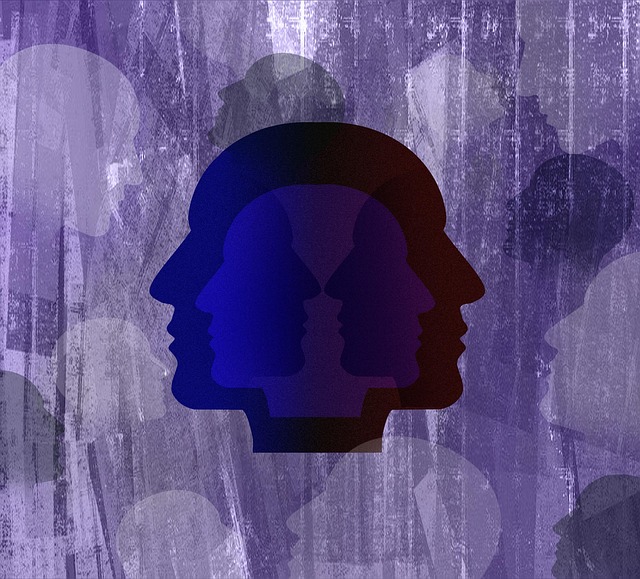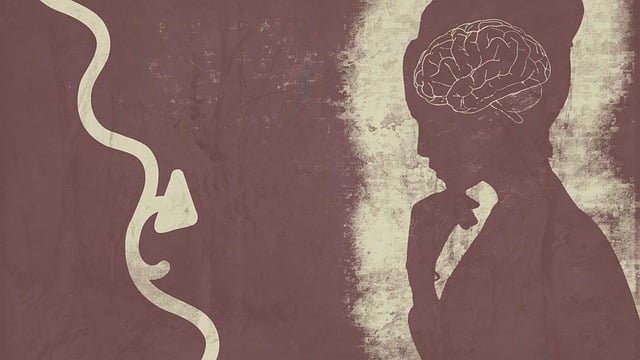Colorado Springs Depression Therapy prioritizes social skills development as a core component of enhancing mental wellness. By addressing social difficulties, which often accompany depression and anxiety, individuals can overcome isolation, low self-esteem, and exacerbation of these conditions. Through empathy-building strategies, effective communication techniques, crisis intervention guidance, and mindfulness meditation, Colorado Springs Depression Therapy programs empower participants to navigate social situations confidently, build healthy relationships, and improve overall mental health. These holistic approaches, including self-awareness exercises and stress management techniques, have proven successful in fostering well-being and transforming lives.
Social skills training is a game-changer in the realm of mental health support, especially for those navigating depression. This transformative approach targets the social challenges often associated with conditions like depression, offering a unique path to recovery in Colorado Springs depression therapy. By understanding the connection between social skills and mental well-being, individuals can learn to manage interactions, build connections, and reclaim their lives. The following article explores this powerful therapy, its benefits, and real-life success stories that underscore its impact.
- Understanding the Connection Between Social Skills and Mental Health
- Identifying Challenges in Social Interaction for Individuals with Depression
- Benefits of Social Skills Training for Depression Therapy in Colorado Springs
- Key Components of Effective Social Skills Training Programs
- Real-Life Success Stories: How Social Skills Training Transforms Lives
Understanding the Connection Between Social Skills and Mental Health

Social skills are essential components of mental wellness. In Colorado Springs Depression Therapy and other mental health contexts, understanding the connection between social skills and mental health is crucial. The absence or difficulty in developing social skills can lead to feelings of isolation, low self-esteem, and even exacerbation of conditions like depression and anxiety. Empathy building strategies play a vital role here, as fostering empathy helps individuals connect with others, reduces social anxiety, and promotes healthy relationships.
Coping skills development is another critical aspect. Training in effective communication, conflict resolution, and active listening not only enhances social interactions but also provides individuals with tools to manage stress and overcome challenges. By integrating these strategies into therapy, mental health professionals can help clients navigate social situations more confidently, thereby improving their overall mental wellness.
Identifying Challenges in Social Interaction for Individuals with Depression

Individuals dealing with depression often face significant challenges when it comes to social interactions. This mental health condition can make even simple social gatherings or conversations feel overwhelming. Many people struggling with depression may withdraw from social activities due to feelings of sadness, hopelessness, and a lack of energy, which are common symptoms. In Colorado Springs Depression Therapy, experts emphasize that these social retreats can exacerbate the problem, creating a cycle where loneliness deepens and recovery becomes more difficult.
Depression can hinder an individual’s ability to initiate or maintain conversations, interpret social cues, and engage in group activities. Simple tasks like joining a community conversation or participating in group therapy sessions might seem daunting. The Community Outreach Program Implementation in Colorado Springs offers crucial support by providing guidance on crisis intervention techniques, which can empower individuals to navigate these challenges. Moreover, burnout prevention strategies are essential components of these programs, ensuring that both patients and caregivers find respite and sustain their social connections despite the difficulties associated with depression.
Benefits of Social Skills Training for Depression Therapy in Colorado Springs

Social Skills Training for Depression Therapy in Colorado Springs offers a transformative approach to addressing mental health concerns. This therapeutic method recognizes the profound impact of social connections and interactions on an individual’s well-being, especially those dealing with depression. By focusing on teaching practical social skills, this program empowers residents of Colorado Springs with the tools to navigate social situations more confidently. Participants learn effective communication strategies, assertiveness techniques, and emotional regulation methods, enabling them to foster meaningful relationships and improve their overall quality of life.
The benefits are numerous; improved social connections can reduce feelings of isolation and loneliness, common symptoms of depression. Through role-playing exercises and group discussions, individuals gain crisis intervention guidance, enhancing their ability to manage challenging situations. Additionally, mindfulness meditation techniques incorporated into the training promote emotional balance, helping individuals regulate their mood and respond to triggers more adaptively. This holistic approach not only supports Colorado Springs depression therapy but also equips clients with lifelong skills for better mental health management.
Key Components of Effective Social Skills Training Programs

Social Skills Training Programs that are effective typically incorporate several key components designed to address specific needs related to mental health conditions like depression. In Colorado Springs Depression Therapy, for instance, programs often begin with self-awareness exercises to help individuals recognize and understand their emotional triggers. This self-reflection is crucial in fostering personal growth and enabling individuals to manage their responses to challenging social situations.
Beyond self-awareness, these programs emphasize the importance of self-care routine development for better mental health. Structured routines can significantly impact mood regulation and resilience. By teaching coping strategies like mindfulness practices, stress management techniques, and engaging in activities that promote self-esteem improvement, participants gain valuable tools to navigate social interactions with confidence. Such training prepares individuals to engage in meaningful relationships, enhance their support networks, and ultimately improve their overall well-being.
Real-Life Success Stories: How Social Skills Training Transforms Lives

In the realm of mental health support, social skills training stands out as a powerful tool for transformation. Many individuals struggling with conditions like depression in Colorado Springs have found hope and improved quality of life through specialized programs focused on this aspect of healing. These real-life success stories are a testament to the effectiveness of such interventions.
For instance, consider a case where a young adult, once plagued by social anxiety, learned to manage their fears and engage in meaningful conversations. Through Colorado Springs depression therapy that incorporated social skills training, they gained confidence to join a local support group, fostering connections that enhanced their overall well-being. This journey from isolation to active participation exemplifies how targeted interventions can equip individuals with the tools to navigate social situations with ease, thereby promoting positive thinking and stress management. Such workshops often include mindfulness meditation techniques, teaching participants how to stay grounded in the present moment, which has been shown to reduce symptoms of anxiety and depression.
Social skills training has emerged as a powerful tool in enhancing mental well-being, particularly for individuals grappling with depression. By addressing the social challenges associated with this condition, programs like those offered in Colorado Springs depression therapy provide a holistic approach to treatment. Through structured learning and practice, participants gain the confidence to navigate social situations more effectively, leading to improved relationships and overall life satisfaction. The success stories highlighted in this article underscore the transformative potential of social skills training, offering hope and a practical pathway to recovery for those seeking support in Colorado Springs depression therapy.












